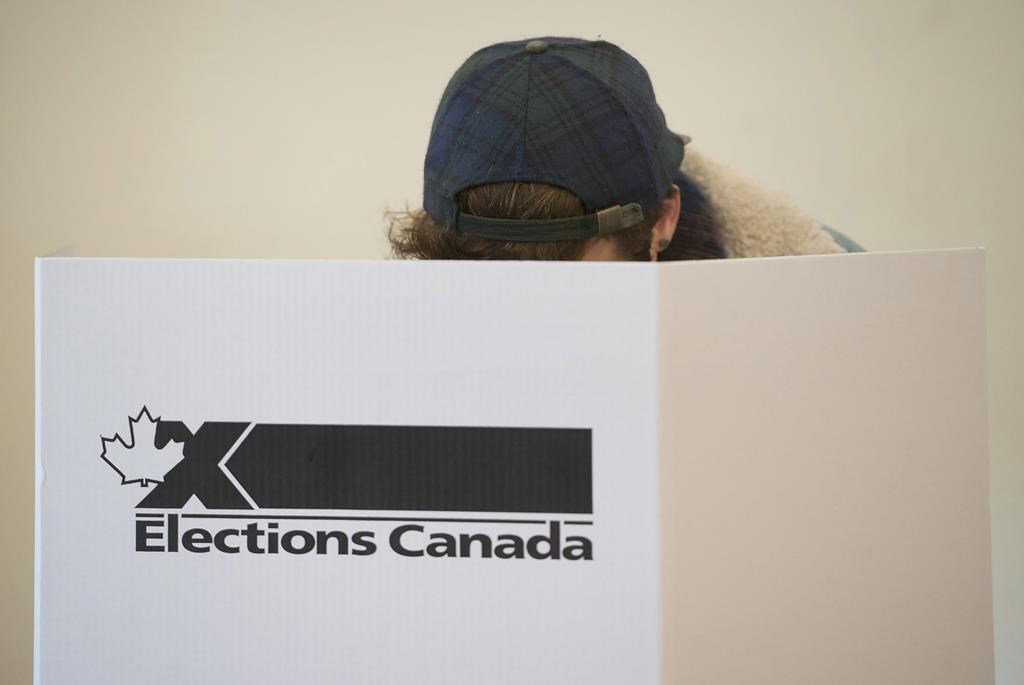Ed. note — This commentary by Amira Elghawaby is one of three appearing Friday that offer a variety of perspectives on the federal election. We also have commentaries from Nathalie Des Rosiers and Tasha Kheiriddin.

A quote from French author Édouard Louis resonates deeply with those of us who understand that the outcome of elections will often have deep implications on those most vulnerable and marginalized in our communities. He wrote:
“Among those who have everything … politics changes almost nothing. … For the ruling class, in general, politics is a question of aesthetics: a way of seeing themselves, of seeing the world, of constructing a personality. For us it was life or death.”
While pundits scrutinize every move a political party makes, assessing the actions or inactions of party leaders and the missteps of candidates, the actual impact of proposed policies makes for decidedly less sexy discussion.
But each party’s ideology is where we must begin any analysis of the choices before the electorate in the 2019 federal election.
COMMENTARY: Justin Trudeau sounds like he’s running against Stephen Harper, Tasha Kheiriddin says
Many are familiar with the left-right spectrum to describe political parties. The spectrum emerged during the French revolution of 1789. Those who supported the King sat on the right side of the National Assembly. Those who supported the revolution were on the left. The term evolved and spread over the centuries.
“The right has been more favourable to the aristocratic position, to the hierarchy of birth or of wealth; the left has fought for the equalization of advantage or of opportunity, for the claims of the less advantaged,” wrote the late Scottish sociologist Robert M. MacIver in his 1947 book, The Web of Government. Little has changed since then.

Get daily National news
It is through this lens that voters should be assessing the various parties offering to lead our country. To avoid doing so puts people’s lives and livelihoods in jeopardy — including their own. The reality is that parties which govern on the right have managed to co-opt the language of the left to appeal to working-class people. The centre borrows from both.
This is evident in provinces like Ontario, Alberta, and just this week, in Manitoba, where voters have elected right-wing governments that ostensibly promise to stand up for the less advantaged, but whose policies are often detrimental to those very same people. We need only look at initial reductions in spending on services for autistic children, cuts to education, clawed back refugee support, reversals on environmental initiatives, and attacks on efforts to reduce emissions.
COMMENTARY: Populism trend spells trouble for all parties, Nathalie Des Rosiers says
Here’s the inverted logic: less government intervention means fewer rules about how workers should be treated or protected; less taxation of business profits means less regulation of environmental impacts, and the higher our standard of living.
Social services are a drain on taxpayers, so the logic goes, without examining the disproportionate taxation that average people pay as compared to corporations. The rich are simply getting wealthier, with Canada’s 100 highest paid CEOs earning 197 times more than the average worker in 2017, up from 171 times in 2012.
Throw in the latest right-wing populist argument — less immigrantion equals fewer people competing for scarce jobs — and you’ve now got a narrow, xenophobic basis on which to cast your vote. Anti-immigrant sentiment provides those disenchanted with their economic prospects an easy scapegoat on which to pin their problems — rather than re-examine their support of parties that actually undermine the social safety net. It also ignores the fact that immigrants are, in fact, a boon to the economy.
Richard Florida, head of the Martin Prosperity Institute at the Rotman School of Management at the University of Toronto, conducted a joint study of the role of class in the last three American presidential elections. The researchers discovered that working-class people who had historically supported Democratic candidates (arguably situated towards the centre-left on the political spectrum), had swung to the right and were now more frequently voting for Republicans. We all know how that is playing out.
Pollster and author Michael Adams notes in his most recent book, Could it happen here? Canada in the age of Trump and Brexit, that it is common for Conservatives to describe themselves as “fiscally conservative and socially progressive.” What we need to understand is that you can’t actually be both — fiscal conservatism, by its very nature, harms society’s efforts to address systemic barriers that prevent people from realizing their full potential.
If politics is simply the arena of the ruling class — the so-called “elites” — then no wonder voters are reacting by either losing faith in political parties altogether, or voting for politicians who claim to be challenging the system.
READ MORE: Most Canadians feel society is ‘broken,’ politicians don’t care about them, Ipsos poll finds
The sad reality, though, is that many of those politicians, by the very nature of their party’s ideologies, are all about maintaining that status quo. It isn’t about making life more bearable for those who are struggling — it is about cutting services, reducing taxes, and protecting profits. A matter of life and death? It can be. If you disagree, then you may want to pay closer attention.
Amira Elghawaby is a human rights advocate based in Ottawa. Follow her on Twitter @AmiraElghawaby







Comments
Want to discuss? Please read our Commenting Policy first.